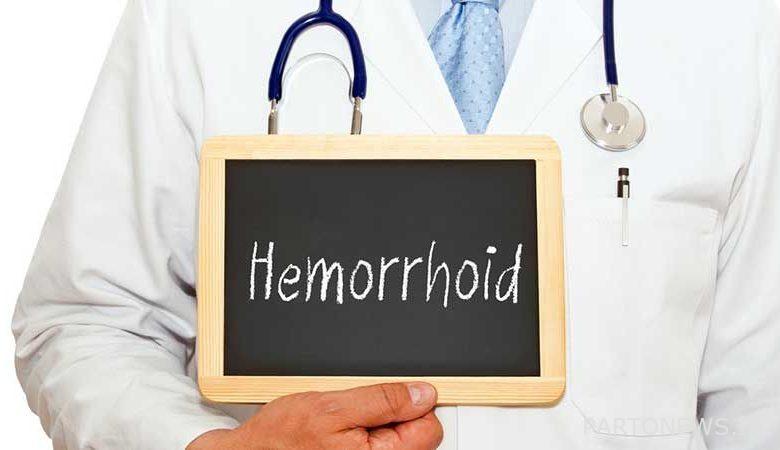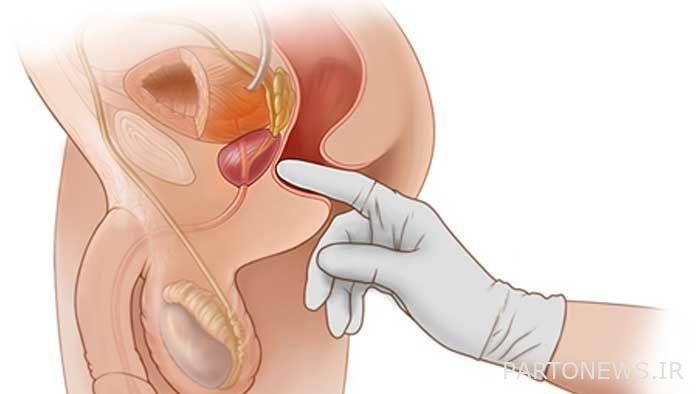Treat hemorrhoids by choosing the right doctor!

Hemorrhoids are large, swollen veins around the anus or inside and below the rectum, also known as varicose veins. The rectum is the last part of the large intestine and leads to the anus.
Everyone in this area has hemorrhoidal tissue, which is made up of blood vessels and some muscle. Hemorrhoidal vessels and pads do not always enlarge or dilate. But with age and other factors such as increased pressure in this area, hemorrhoidal arteries become damaged and inflamed and eventually a person develops hemorrhoids. There are two types of hemorrhoids, internal and external, each of which may need different treatment.
What we read in this article
How do we know we have hemorrhoids?
Internal hemorrhoids rarely cause pain (usually asymptomatic) unless they have prolapse. Many people with internal hemorrhoids do not know they have it because they have no symptoms.
If you have internal hemorrhoids, you may see blood on your toilet paper, stool, or toilet bowl. These are signs of rectal bleeding due to hemorrhoids. Of course, prolapsed hemorrhoids can be painful and uncomfortable. You may be able to touch them outside the anus and gently push them back in.
Symptoms of external hemorrhoids include:
- Anal itching
- Hard masses near the anus that are painful
- Pain in the anus, especially when you are sitting
- Bleeding from the rectum
- Redness and inflammation
Causes of hemorrhoids
Hemorrhoids occur for a variety of reasons, the most common of which is constipation, increased pressure, and straining to defecate. Lifting heavy objects, along with other activities that may put pressure on the anus, can cause hemorrhoids. Experience of increased pressure during pregnancy and overweight are other effective factors in causing this complication.
Hemorrhoids can be painful and annoying if they progress, but they are not life-threatening or life-threatening. There are many effective ways to treat hemorrhoids that depending on the severity and type of disease, the best method is prescribed by a doctor.
How is hemorrhoids diagnosed?
Your doctor will ask you to describe your symptoms and review your medical history. Physical examination may also look for signs such as inflammation and irritation of the skin, lumps or swelling, protrusions, as well as skin tags and so on.
To examine for hemorrhoids, you should prostrate or lie on your side and fold your legs into your abdomen. The doctor uses a finger to examine the anus, and if internal hemorrhoids are not detectable, he or she will use other diagnostic methods, such as anoscopy and colonoscopy.
After the doctor confirms the hemorrhoids and determines the condition of the disease, the best method of treating hemorrhoids will be prescribed for you. If hemorrhoids are advanced, surgery and laser are the only ways to treat this complication.

Choosing the best hemorrhoid doctor
Related Posts
Hemorrhoids are treatable and can be stopped forever by choosing a good hemorrhoid doctor. For the treatment of hemorrhoids, choosing the best doctor who specializes in the diagnosis and treatment of hemorrhoids is extremely important and can be very effective in the treatment of your disease. Choosing the wrong doctor means prolonging the treatment process and creating newer problems.
Definitely having a specialized surgical board in one of the following areas is one of the most important factors for choosing a doctor that you should consider:
- General Surgeon
- Gastroenterologist
Also, checking the doctor’s records and the level of satisfaction of the patients who have been treated by this doctor is one of the important points that you must pay attention to.
A doctor who has sufficient knowledge and information in the field of diagnosis and recognition of various anal diseases including hemorrhoids and is familiar with the best and most up-to-date methods of their treatment and has a successful treatment history in this field can be the best option to treat your complication.
The best ways of treatment
Hemorrhoids that do not go away with home remedies may require medical attention. First- and second-degree hemorrhoids that are less than a few weeks old can be treated with home remedies and medications.
But the only way to get rid of this disease is laser methods and hemorrhoid surgery. The use of home remedies and methods only helps to improve the symptoms of the disease, and this complication is constantly recurring. The medical methods of hemorrhoids are as follows:
Laser treatment of hemorrhoids
Laser treatment of hemorrhoids is one of the most up-to-date methods of treating this complication, which is done in less than half an hour and on an outpatient basis. Hemorrhoid laser surgery is performed under local anesthesia and does not require anesthesia.
During the laser hemorrhoid procedure, the damaged rectal arteries are destroyed by direct laser radiation without pain and bleeding. The patient is discharged immediately after the operation and returns to normal life.
Also, the patient does not feel any pain or discomfort in the laser method, and due to the high accuracy of this method, no damage is done to the surrounding tissues.
Hemorrhoid surgery
The best methods for hemorrhoid surgery include open and closed hemorrhoidectomy, which is usually performed under anesthesia and in a hospital:
Open hemorrhoidectomy: In this procedure, the doctor uses a razor blade to completely remove the hemorrhoidal arteries and, at the end of the surgery, does not suture the wound so that it heals over time. In this method, due to the openness of the surgical site, the possibility of infection and recurrence of the disease is very low.
Closed hemorrhoidectomy: This procedure is very similar to the open hemorrhoidectomy procedure, except that at the end of the surgery, the incision is closed with sutures.
Postoperative care is an important part of treatment and must be done properly. Regular change of dressings, taking antibiotics, painkillers and using the toilet, avoiding heavy work and… are important things that must be observed to minimize the possibility of recurrence of the disease.
Please rate this article
[مجموع: ۰ میانگین: ۰]


